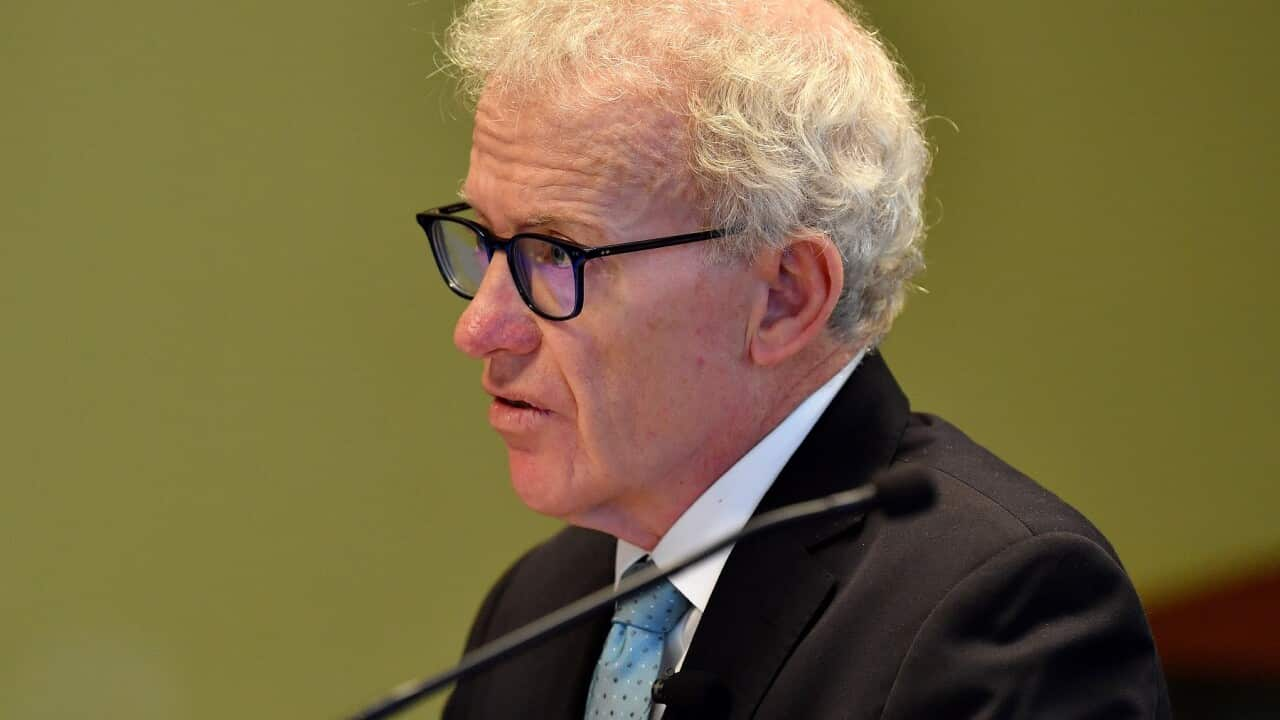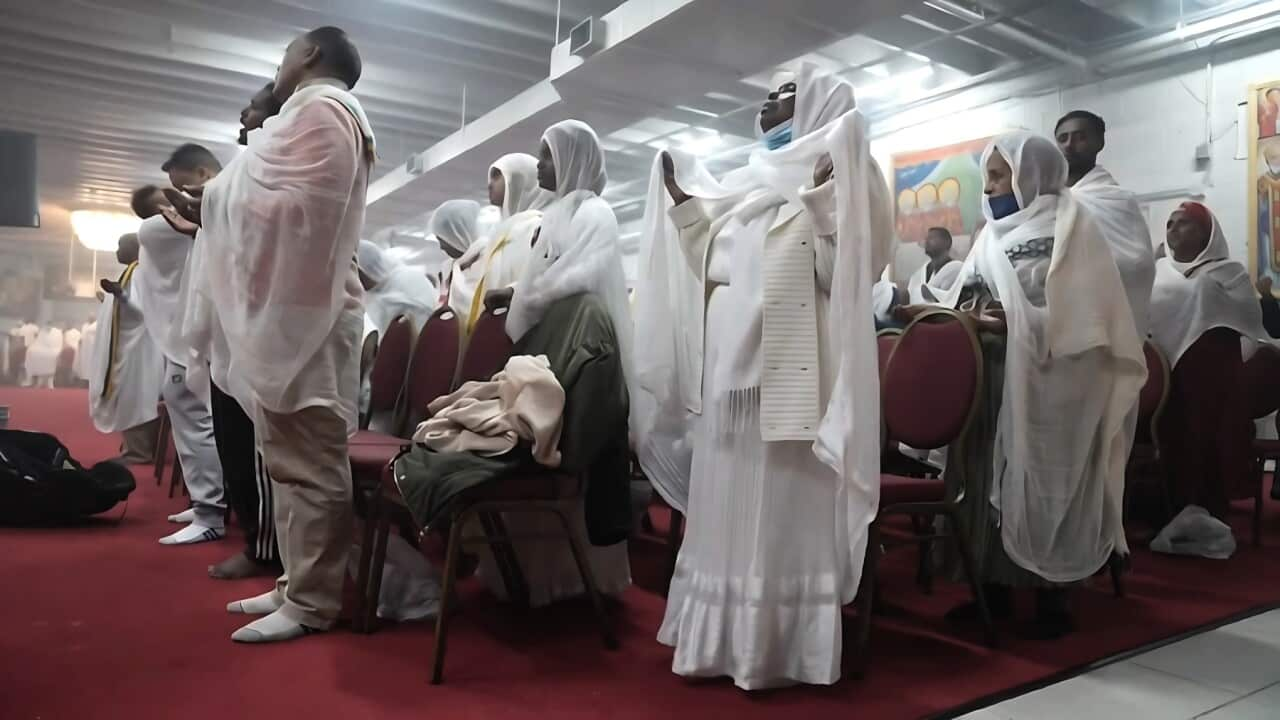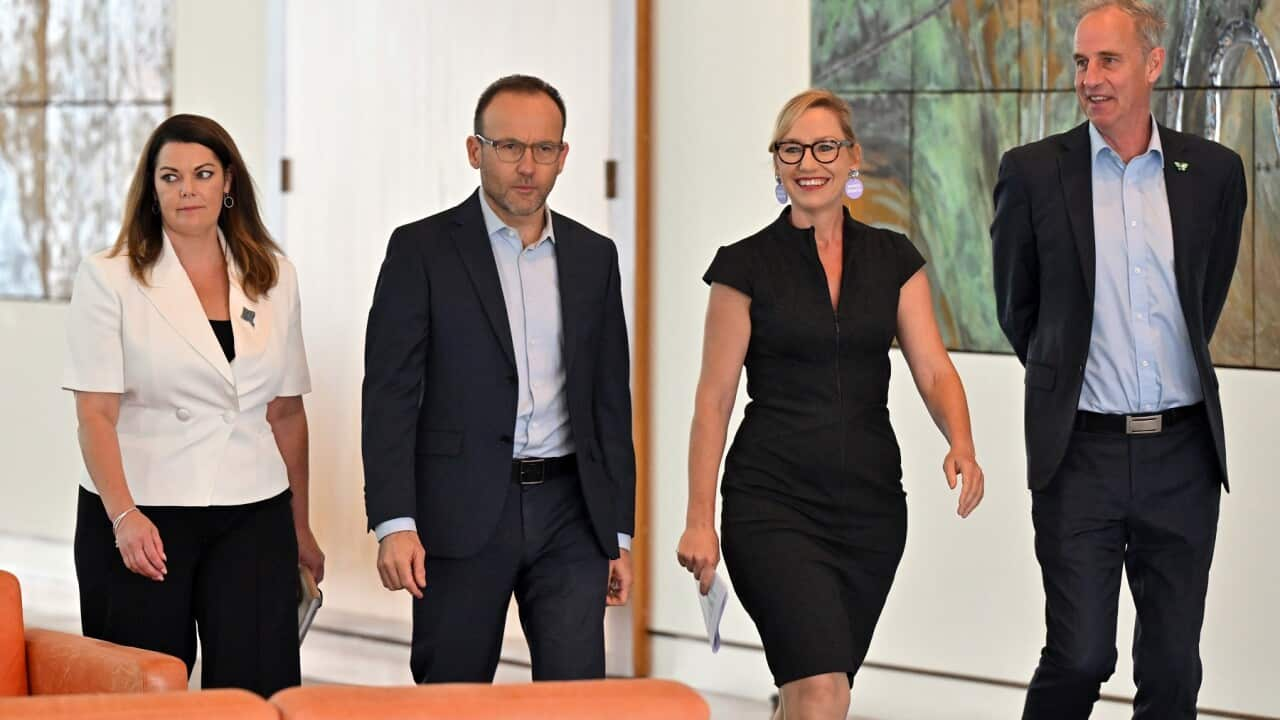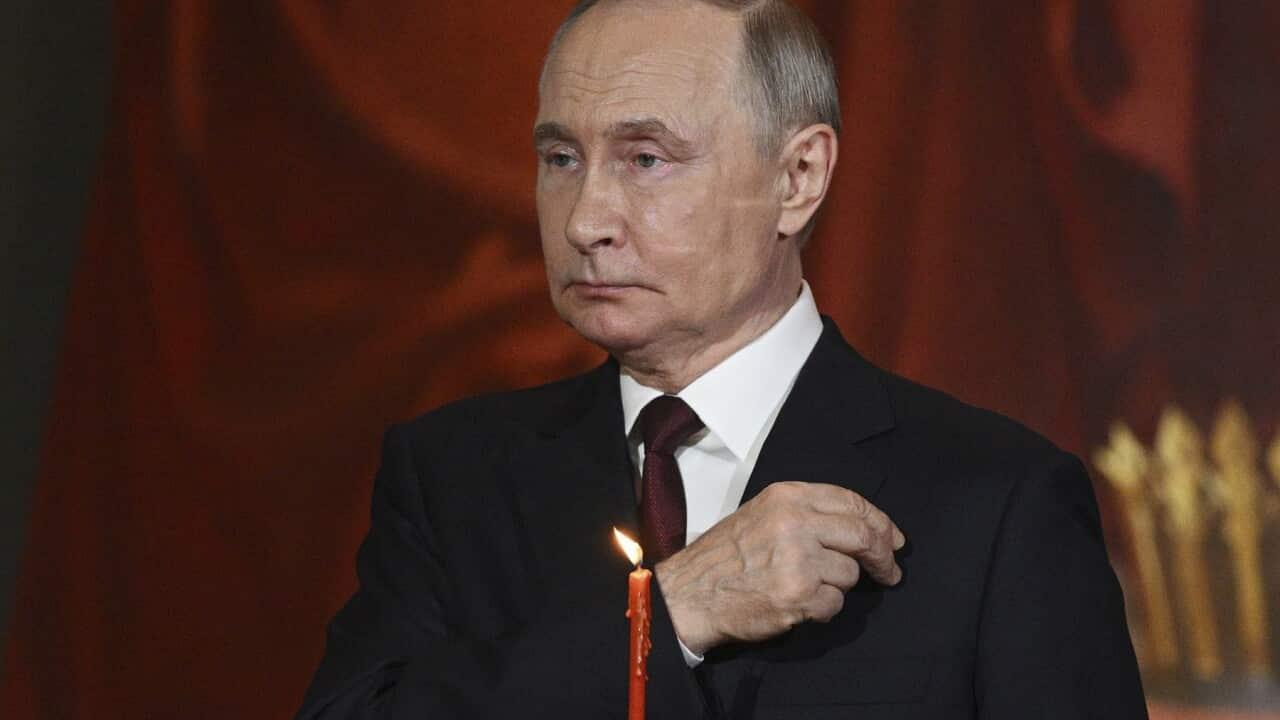TRANSCRIPT
"Overly defensive" and "even adversarial".
That's how the behaviour of the New South Wales Police Force has been described, on the final day of the inquiry into unsolved gay hate crimes in the state.
The Special Commission of Inquiry into LGBTIQ Hate Crimes was commissioned 18 months ago to investigate all deaths of LGBTIQ+ people, suspected to be hate crimes, between 1970 and 2010.
Led by Justice John Sackar, it identified 32 hate crimes but acknowledged there may be more uncovered.
Reflecting on the Commission's work, Senior Counsel assisting the inquiry Peter Gray has noted New South Wales Police's "contentious" relationship to the LGBTIQ+ community - and to the inquiry itself.
"Some hard truths have certainly been told. Many voiceless people have been given a voice. Recommendations will be made. Improvements in processes and procedures should follow. There is scope for people of goodwill, of whom there are many in this arena, to come together if they so choose and work towards a better future."
New South Wales Police have publicly supported the inquiry, which saw lawyers and investigators closely examine 150,000 police records and coronial documents.
But Mr Gray says the attitude of police asked to provide evidence during the inquiry was often "slow, incomplete and spasmodic".
The attitude has been disappointing and distressing for members of the LGBTIQ+ community and their loved ones, who say the police need to learn from systemic failures.
Peter Russell, whose brother John was found dead at the bottom of a cliff in Sydney's eastern suburbs in 1989, hopes to see major changes in attitude and procedure.
"Ah look education for police, A, record-keeping, and just the storage of evidence. It really is just a simple thing, if they had have just looked after that evidence, I wouldn't be standing here now."
Police at the time found there to be "no suspicious circumstances" in John's death, which was one of the 32 cases identified by the Commission.
Mr Russell says when he pushed officers to investigate, they accused him of murder, ignoring evidence which pointed to a targeted hate crime.
In other cases, such as the high-profile death of American mathematician Scott Johnson, police ruled suicide, ignoring his family's protests and ample evidence of gay-bashings in the area.
Emily Saunders says members of the LGBTIQ+ community were often disbelieved or simply laughed at when reporting crimes.
Ms Saunders is President of Dykes on Bikes Sydney, an organisation which she explains began in the 1980s to patrol the streets for hate crimes and break up attacks.
She says the attitude of the police force has done great harm.
"I think that it has seen our community being isolated from government agencies and institutions that we should otherwise be able to rely on. We all pay our taxes, we contribute to the society that we're part of, yet we're not entitled to expect the support - or even the engagement of - services like the police, the mental health institutions, such things. The automatic assumption that someone who is LGBTQI-identified must be suicidal is abhorrent and offensive to the extreme. Why should we not celebrate who we are and just live our lives?"
However Ms Saunders does hold some hope for reconciliation, made possible by the commission's inquiry.
"There are certainly changes, as discussed today: yes, there's still work to do, yes, there's still defensiveness, I believe, on the part of the police force. I think that's understandable - I know individual officers do the work they can do, their best. But on the whole, a lot's been brushed aside, dismissed, or under the carpet. And it needs to be examined."
For some families, the inquiry has uncovered breakthroughs in evidence which many hope could lead to decades-old cases being solved.
But Mr Russell fears the police's negligence - including losing evidence - has wasted precious years.
"Time is the tyranny now when it comes to my brother's murder. There's somebody out there who knows something, Bondi was a close-knit community, I grew up there. So somebody obviously knows something but it's getting to the point in time now where if they don't say something soon it'll all go to the grave with them."
However, after more than 30 years of fighting for justice, he has found some comfort in the inquiry.
Senior Counsel Peter Gray acknowledges it has been a gruelling and painful process for those still mourning the deaths.
"The response of the community, of society, of its institutions to these deaths, was sadly lacking. All of these lives of every one of these people mattered. They mattered to them, they mattered to their loved ones, and ultimately to all of us."
The commission will hand down its recommendations on 15 December.













